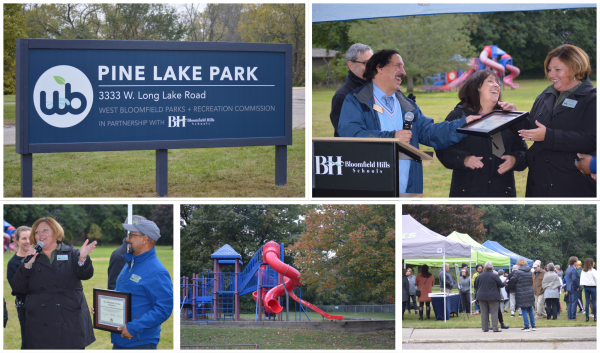Four Students Receive Perfect Scores on ACT
Emily Wang, Helena Gregg, Alan Zhang, and Simona Zhu receive the highest possible mark on the ACT.
With the release of the ACT score reports two weeks after the actual exam, four students received a composite score of 36, the highest mark that can be given.
“I was really happy,” said Emily Wang, a junior who took it for the second time in September of 2016. “My mom texted me while I was at school with a screenshot of the report. I didn’t see her in person, but when I got home, she was ecstatic about the news.”
According to the ACT scoring guidelines, less than 0.1% of students who take the ACT receive perfect composite scores. Another 36-receiving student, Helena Gregg who has been preparing for the ACT since 6th grade, explained her first time wasn’t as successful.
“In sixth grade my score was a 25, and that was my first time taking it,” said senior Helena Gregg. “Seventh grade was a 27, and in eighth grade, for some reason, it actually jumped 8 points to a 35. By sophomore year, I got a 36. I was really used to it by the last time because eventually once you take it, you get used to it and get the sense that it’s not overwhelming and you know what you’re doing.”
With motivation to prepare being one of the biggest factors in how students do on the exam, Wang and Gregg cited their biggest motivations as themselves.
“I took [the ACT] twice in my entire life, once in eighth grade and once in September, but in eighth grade I wasn’t really aiming for anything,” she said. “I was just like, ‘Oh, I’m just gonna do this,’ but after [receiving a 33], I aimed for the best that I could possibly do. I just want to do well in the things that I try, and since I have to do this, I might as well do well. I wasn’t really pushed. I knew I could probably do better.”
Following her thoughts, Gregg said, “Honestly, I was competing with myself because I thought that I could do this, I could do better. It was a little bit of an obsession, to be honest, because if you’re so close, so close to the edge, then all you have to do is focus a little more. You know you can do it. With all the mistakes I had on my 35, it’s not like you don’t know it, it’s more you weren’t paying attention and missed it. You know the content; you just need to be focused.”
Unlike Wang and Gregg, however, both freshman Alan Zhang and junior Simona Zhu had only taken it one time and had no such experience.
“Officially, I only took the ACT once in April,” Zhu said. “I started practicing in February of 2016, but a few weeks before the test, I took a lot of practice tests and I would check over them and see what I got wrong, made sure I could improve.”
“I was aiming for a 34 and above, though,” she added. “My dream school is University of Pennsylvania’s School of Business, but also University of Michigan. With my average practice test scores, I knew I was capable.”
In contrast to Zhu, however, Zhang took the ACT at the age of 13 not for his dream college but for Northwestern University’s Midwest Academic Talent Search. “The ACT is very important later on,” he said. “I just wanted to get a head start. [After seeing the results], I felt disbelief. I scrolled up and I found my results showed composite 36, so at first I dropped my phone.”
Zhang, who is taking pre-calculus as a freshman, recommended for future test-takers to “read a lot. Don’t just study for the ACT or SAT; study for a variety of topics and go with your instinct.”
Zhu disagreed. “Stay motivated, practice, look over your mistakes, and correct them,” she said, in regards to tips for test-takers. “Mainly my problem was getting used to the time limit, but with the frequent testing, I was able to fit my time around it and space out my questions well. I could rethink everything in the allotted amount of time, and check over my answers.”
For the actual test, Zhu also added that “it’s worth it to take it with writing, because some colleges require writing, so you might as well take it altogether.”
In respects to final sources of motivation, Wang said to leave stress behind and rely on preparation done beforehand.
“It’s not just about being able to take the test and do what they want you to do, it’s about anticipating what they want you to think, anticipating what kind of skills they want you to use,” she said. “There’s a little pressure but it’s not insane; there’s not a lot of stakes. Really, I was confident enough to know that there’s nothing you can screw up that badly. Even if you get a 2, you’re not gonna be put on some college blacklist. It’ll be okay.”

Hi, I'm Jessica Kim, Co-Editor-in-Chief of BHHS Today. As a senior, you can find me swamped with homework, cramming frantically, or napping myself into...





